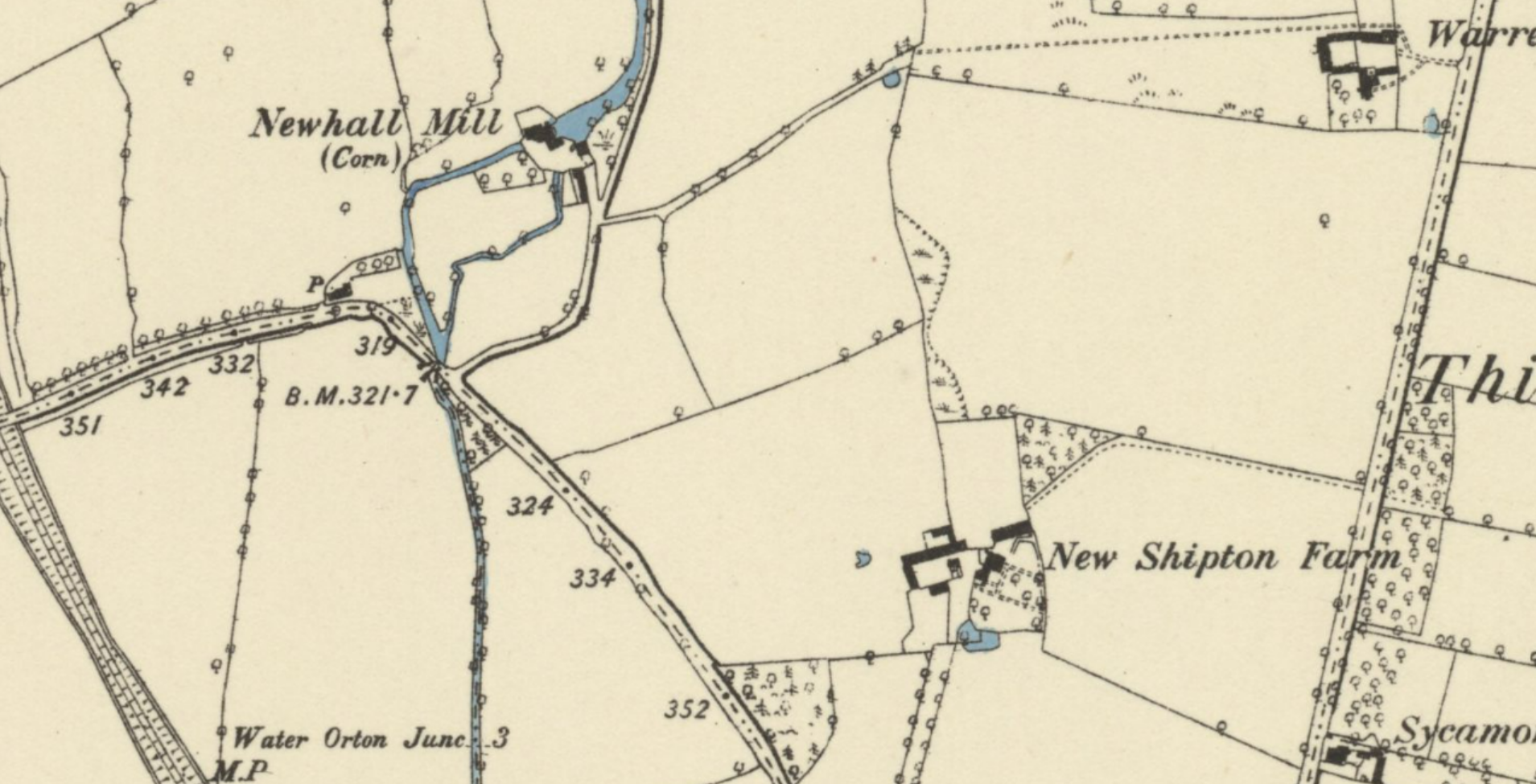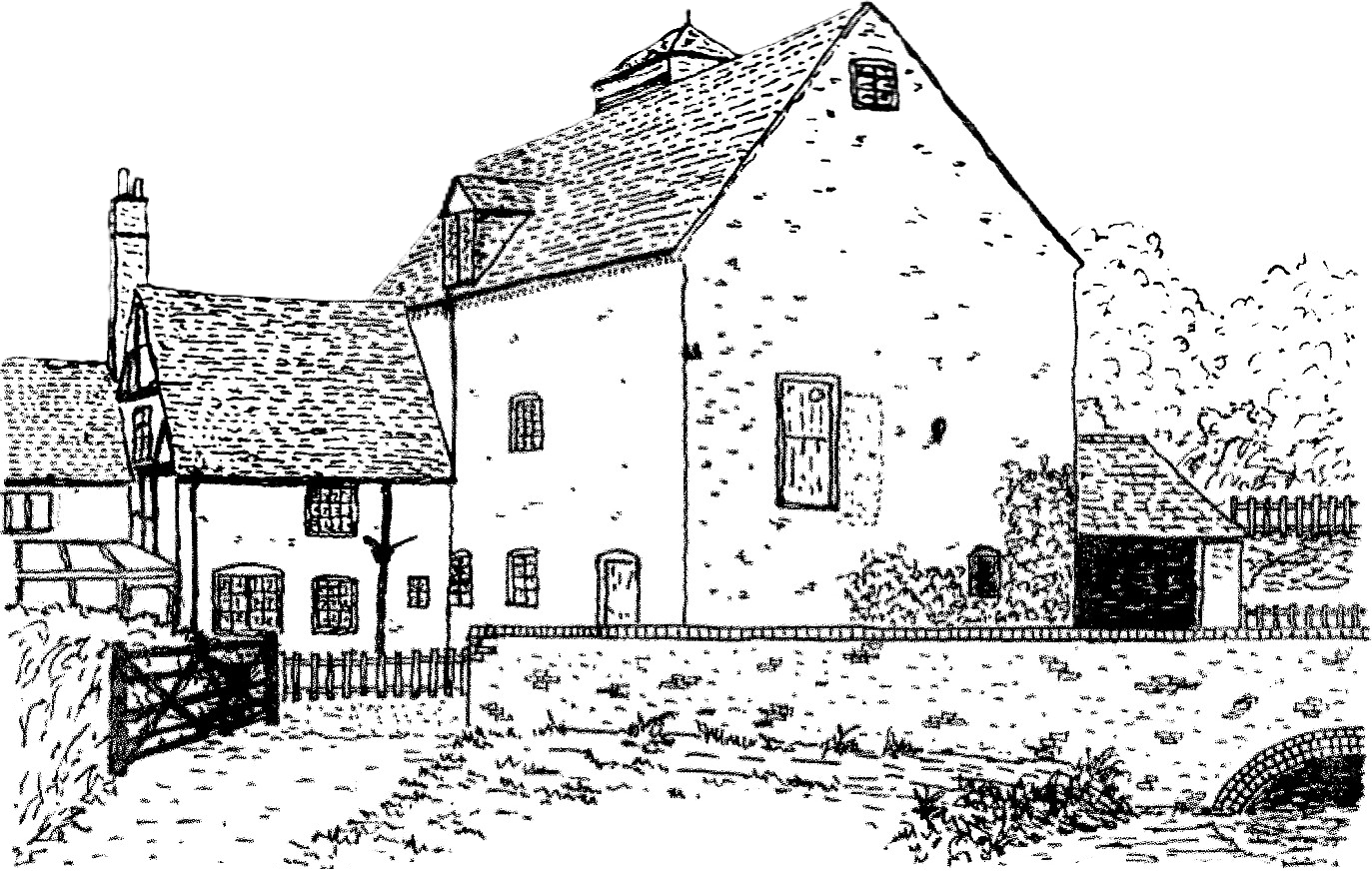The Ghost of New Shipton

On a miserable day in 1745, as the wind whistled through the trees and the sky brooded with storm clouds, a lonely figure wandered the misty paths near Eachelhurst. Whatever the weather, he spent his days meandering through the countryside, but on this particular day, fate had set a darker course for him.
Out of the fog, a thunder of hooves shattered the peace. A band of soldiers, grim-faced and battle-worn, emerged like spectres from the gloom. They were an advance party from the Duke of Cumberland’s army, relentless in their pursuit of Bonnie Prince Charlie’s fleeing men. And they were lost.
Desperate for directions, they called out to the Erdington man. Their words were sharp, urgent. But the poor chap stared back with frightened eyes as he tried to reply. He had a cleft palate, and found it so difficult to communicate, that the soldiers were unable to understand him.
There was a moment of silence. Then suspicion twisted their faces, and somebody said what they were all thinking - he must be a spy. The word hung heavy in the air, and the decision was made in a heartbeat. The soldiers took the man to their commanding officer, who ordered them to execute the poor fellow.
A shot rang out. The man crumpled to the ground, his life stolen before he could even beg for mercy. Not satisfied, the soldiers unsheathed their blades. With a sickening gleam of metal, they severed his head from his shoulders, then dragged his lifeless body through the mud, and dumped it in a ditch.
Cruelly, their bloodlust not yet sated, they impaled the severed head upon a sword, carrying it like a grotesque trophy. They rode on to New Shipton Farm, where the New Hall miller William Twamley lived. Spotting an ancient oak, they hurled the man’s head into its gnarled branches, where it became entangled and hidden among the old tree's twisted limbs.
Decades passed. The tree stood, silent and watchful. William Twamley's great grandson William Twamley now lived at New Shipton Farm. He was a miller too, like his ancestors for generations before.
In 1827, the meadows where the execution took place were drained, and the lost man's body was found. A few weeks later the time finally came for the ancient oak tree to be felled. Its limbs groaned as it crashed to the earth, and a skull rolled out, with something far darker unleashed with it.
Now, on misty evenings, there are whispers that the eerie shadow of a skull floats from New Shipton, along Wylde Green Road towards Eachelhurst, its hollow eyes burning with sorrow and pain. Some claim to hear the man's ghostly wails, desperately begging to be reunited with the body from which he was so cruelly torn.
So beware, lone wanderers. If you walk around New Hall Mill when the fog rolls thick and the air turns cold, listen carefully, for the lost soul of Erdington still roams.

Sources
The earliest source I have found for the above story (minus the ghost) is 1860, when the anecdote was told by Baron D Webster of Penns in, "The Forest and Chase of Sutton Coldfield". Here is the complete original text:
In 1745, a portion of the Duke of Cumberland's army marched across the parish on its way to meet the Pretender in Scotland. Some of the troops lay at night at Castle Bromwich, the officers occupying the new inn now called the Bradford Arms. Here they spent the evening with so much revelry that the officer in command, on moving with his regiment next morning, was not sufficiently sober to know that he was without his sword. On reaching Basset's Pole he made the discovery, and was obliged to retrace his steps to recover his weapon. He was, however, so much entertained by the adventure, that on reaching the inn he declared that as long as he lived he would give a banquet there on the anniversary of the day on which he marched to fight for his King and country without his sword. This promise he fulfilled, and persons now living have had the circumstance related to them by those who actually assisted at the celebration of an exploit, which at this day would not be regarded as justifying an annual jubilee.
The same officer may have been a principal actor in another adventure of that morning. The advanced guard being ignorant of the road, made inquiries of a man whom they found near Tyburn. The poor fellow had no roof to his mouth, and the soldiers being unable to understand a word he uttered, pronounced him a spy, and took him as such before the commanding officer. He at once ordered him to be shot. The order was instantly executed; and, in further vengeance, his head was struck off, and carried on a halbert as far as New Shipton, and there tossed into a tree, the body having been thrown into a ditch in the Echelhurst, just below Pipe Hays. Singularly enough, to confirm the tradition, the body and head were found within a few weeks of each other, in the year 1827: the one at the draining of the meadows, where the execution had taken place; and the other on the felling of the ruins of one of the finest old oaks in the parish.
Do you know of an earlier source than 1860? Let us know! I suspect that the man's later nickname, "the Erdington village idiot", along with the ghost story, were added much later, perhaps in 1990, when Sutton Coldfield historian Douglas V Jones wrote his book "Walmley and its Surroundings," published by Westwood Press of Sutton Coldfield.
